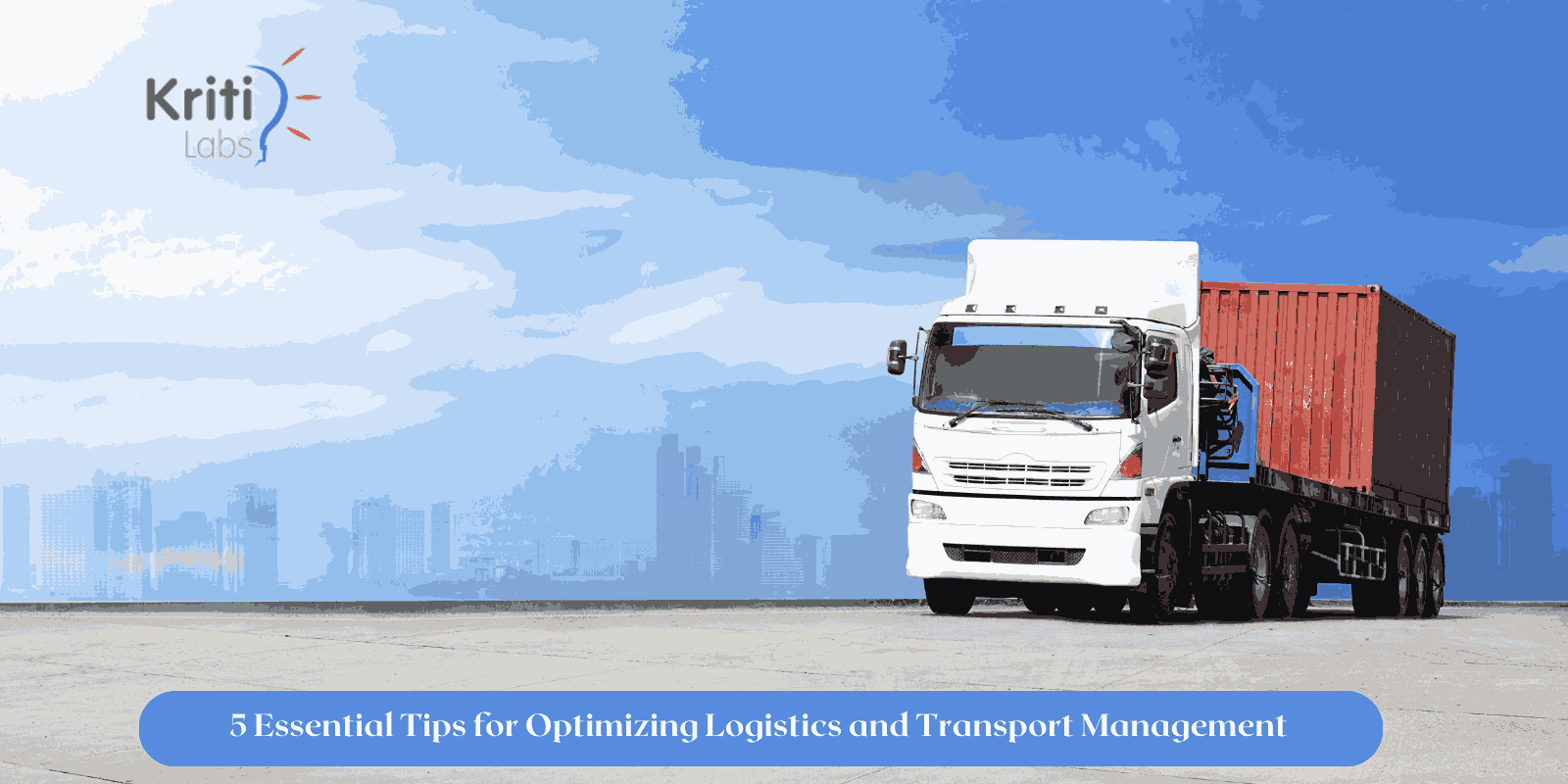
In the supply chain context, logistics and transport management are intricately linked. Efficient transport management is crucial for successful order fulfillment, but it cannot be achieved without the right logistics strategies. To help you streamline your logistics and transport processes, we have compiled five essential tips that you can implement for more efficient operations.
1. Effective Planning and Preparation
The foundation of efficient logistics and transport management lies in proper planning and preparation. This involves various aspects, including procurement, storage, and delivery of goods. Time, transportation, and costs are critical parameters that must be taken into account.
To ensure smooth operations, supply chain operators must establish a comprehensive workflow. While planning aims to achieve maximum results and profits in the shortest possible time, it is essential to be prepared for unexpected circumstances such as shortages, shipping delays, or transport damages.
Manual and disjointed processes make it challenging for managers to detect issues, monitor progress, and take corrective actions. To overcome these challenges, it is crucial to adopt a centralized system that integrates all the processes into a unified platform.
2. Streamline with an Automated Transport Management Solution
One of the easiest ways to optimize your transport management is by automating the process. An automated transportation management solution simplifies the transportation of goods by providing real-time visibility and control over your fleet.
With an automated system, logistics managers can track the operation of transports, their locations, and the factors affecting their transit. Additionally, transport management software offers a range of other features such as recording and arranging trips, tracking fuel usage per vehicle, assigning and monitoring drivers, and tracking cargo based on delivery schedules.
By leveraging a comprehensive transport management solution, you can effectively streamline your logistics operations and access real-time analytical data for informed decision-making.
3. Enhance Staff Performance
Your staff members play a vital role in the growth of your business across various departments, including procurement, delivery, and warehousing. It is crucial to ensure that each department works productively and collaboratively to achieve optimal results.
As a leader, you should provide regular training to improve your staff’s abilities and agility. Make sure they understand the company’s standard operating procedures (SOP), their responsibilities, and the technology used in the organization. Effective human resource management is also essential to prioritize the needs and development of your employees.
Consider implementing a centralized HR management system to monitor employee achievements, conduct satisfaction surveys, and evaluate performance. By investing in your staff’s development and ensuring their satisfaction, you can create a motivated and efficient workforce.
4. Optimize Warehouse Management
Efficient logistics operations rely heavily on proper warehouse management. How goods are stored and arranged in warehouses significantly impact the shipping process. Therefore, it is crucial to ensure that all items are properly organized.
To optimize warehouse management, consider the following practices:
- Store perishable items in a cool place or a fridge for food products to maintain their quality.
- Place high-demand products in easily accessible areas to expedite order picking.
- Ensure easy navigation for forklifts by keeping aisles clear and well-maintained.
- Utilize an inventory management system integrated with a barcode scanner to facilitate accurate recording of incoming and outgoing items.
By implementing effective warehouse management practices, you can enhance inventory control, streamline order fulfillment, and minimize errors.
5. Control Operating Costs
Controlling operating costs is essential for improving efficiency in logistics and transport management. To achieve this, it is crucial to analyze all expenses related to transportation and logistics and identify factors contributing to high expenses.
Consider the following areas for cost analysis:
- Delivery routes: Evaluate whether your current routes result in wasteful fuel usage and identify opportunities for optimization.
- Procurement: Review your procurement practices to identify any inefficiencies that may be driving up inventory costs.
- Packaging: Assess the packaging of your products to determine if there are any cost-saving measures that can be implemented.
One effective way to analyze and save on operating costs is to adopt automated solutions like an Enterprise Resource Planning (ERP) system. An ERP system automates the entire process, ensuring quick and precise execution of each step and minimizing errors that can lead to losses. Additionally, it enables you to estimate income and expenses for a specific period, allowing for more effective budget allocation.
By actively managing your operating costs, you can improve your bottom line and allocate resources more efficiently.
Conclusion
Efficient logistics and transport management are crucial for successful order fulfillment and overall business growth. By implementing the five essential tips outlined in this article – effective planning and preparation, streamlining with an automated transport management solution, enhancing staff performance, optimizing warehouse management, and controlling operating costs – you can streamline your logistics and transport processes, improve efficiency, and achieve greater profitability.
Remember, reliable secure transportation services are essential for the safe and timely delivery of your assets. If you are looking for a trusted partner, KritiLabs offers tailored secure transportation solutions to meet your specific needs. Their experienced team of professionals is dedicated to delivering top-notch service, ensuring the safety and security of your valuable assets throughout the transportation process.


